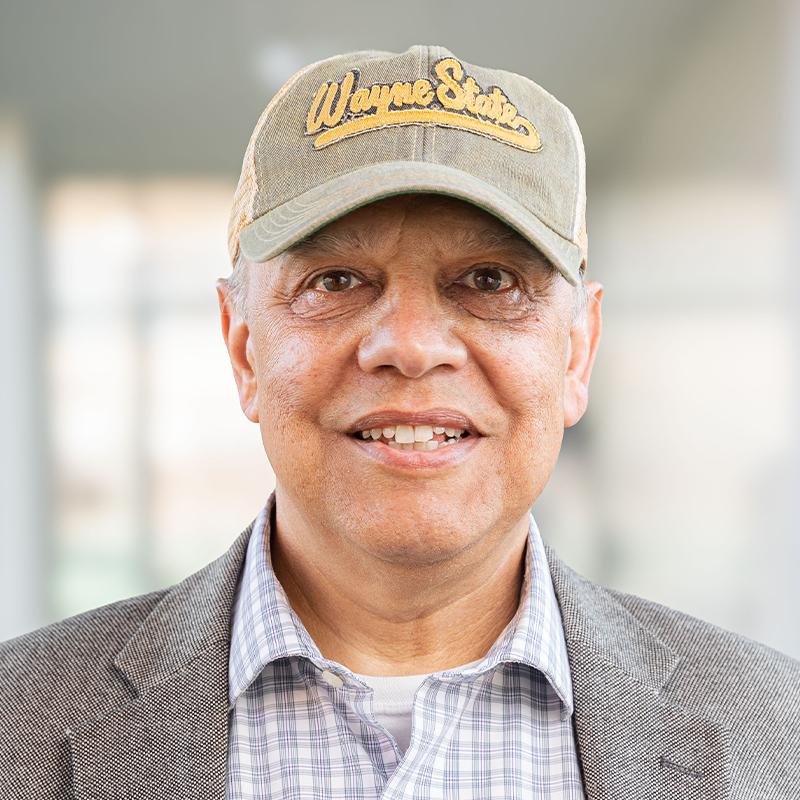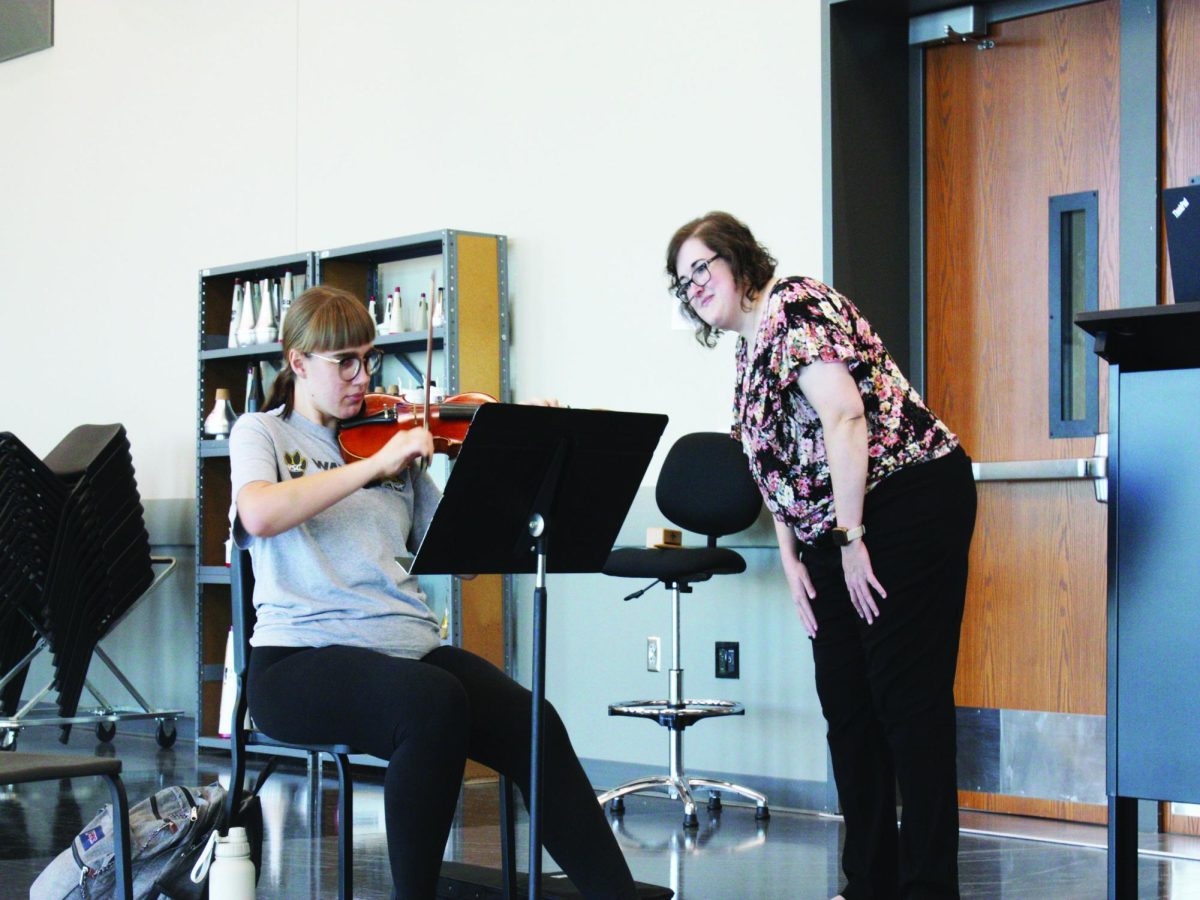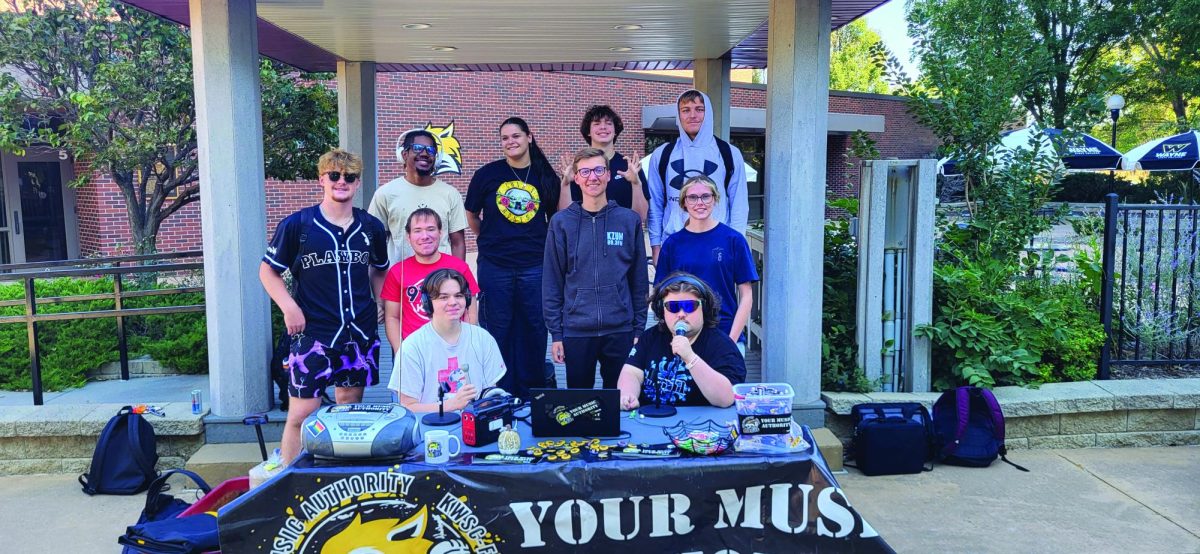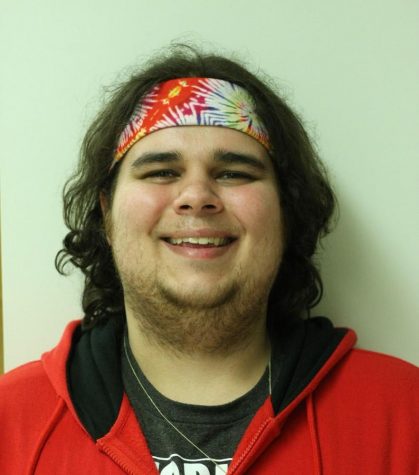Change in HLC rules leads to reassignment of instructor roles
April 19, 2017
Due to recent guideline updates concerning teaching credentials by the Higher Learning Commission (HLC), some changes will be made in the assignment of courses at Wayne State College, beginning in the fall. The HLC is a regional institutional accreditor, accrediting post-secondary institutions for the United States Department of Education.
The HLC’s guidelines for determining qualified faculty were most recently revised in March 2016, with a deadline extended until September 2017 to comply with the revisions. The revisions narrowed the guidelines, meaning instructors must now possess credentials relevant to the field in which they teach.
“There’s always been a faculty qualification rule, called an assumed practice, which is a law that all institutions follow, stating that you have to have a degree above what you teach,” said Sue Sydow, WSC’s assessment director and liaison to the HLC. “As far as narrowing down that content, narrowing it down to having 18 credit hours or tested experience is a new addition.”
The 18 credit hours is a reference to what the HLC calls equivalent experience. This means that instructor scan teach courses that are not in their credentialed field, so long as they have taken 18 credit hours in the field at the level above what they will teach. Tested experience is left more for interpretation, as it is any professional experience the instructor may have in the field.
“Mainly, the tested experience would be for a situation where we have something like welding, for example, where you can’t have a master’s or doctorate, but we can make sure that person has the proper certification,” said Vice President of Academic Affairs Steve Elliott.
Elliott noted that this process at WSC will apply only to adjunct hires, and that full-time faculty members are looked at more thoroughly.
“(The process) involves a thorough review of the individual’s credentials, making sure folks are teaching classes that they not only have certified credentials for, but are academic scholars in their field as well,” Elliott said.
The guidelines have the biggest effect on dual-credit instructors, according to Elliott. Dual-credit instructors are high school teachers who teach classes at their schools that also qualify as 100-level college credits. WSC successfully applied for an extension on that deadline, and all adjunct dual-credit instructors will have until September 2022 to reach compliance with the HLC.
“We work with 15-16 schools every semester that may have somebody teaching a course that, prior to this change, were able to teach dual-credit in any area if they had master’s degree no matter what area it was in,” Elliott said. “This new policy required us to dig deep into what credentials these faculty had.”
Elliott said that not many full-time faculty members were affected, with “only a handful” of courses taught by full-time faculty going through instructor changes beginning in the fall. All department deans were reached for comment on any faculty who may be changing courses, with Humanities Dean Dr. Alan Bruflat responding that four faculty members will have their course schedule affected, with the possibility of select graduate courses being affected as well.
Those four members are Drs. Katherine Butler and Andrew Alexander, who will no longer teach Philosophy courses, but instead English, as both possess advanced English degrees. They will essentially swap duties with Drs. Rodney Cupp and Becky Zavata, faculty members credentialed in Philosophy who had been teaching English.
“What’s disappointing is that all those years of teaching didn’t count in the HLC’s mind. I’ve taught Ethics and Values for 24 years, so I’m upset leaving it behind,” Alexander said. “But Rodney and Becky are going to do a great job.”
Elliott and Sydow are aware that there were tough decisions to be made such as these, but the school is doing what they are required to.
“It’s just like when they raise the speed limit. Yesterday, you could drive 60, and now because of road construction, you can only drive 40,” Sydow said.
“What have been made clear are two things: credentials and scholarly activity in the field,” Elliott said. “We had some difficult cases reviewed by the HLC. Whenever we have a question like that, we bring it to our liaison to make sure we’re not making decisions that are based in something were unsure of.”
Elliott also assuaged current and former students who may now feel like their past classes taken with now unqualified instructors are less valid with the new guidelines.
“Changes to regulations and laws happen and we have to constantly keep up with requirements. We have highly qualified and very capable faculty that take the utmost care to make sure we’re hiring individuals who are experts and really know their content,” Elliot said. “It would reassure me to know the institution is meeting accreditation standards and guidelines and following federal guidelines.”








